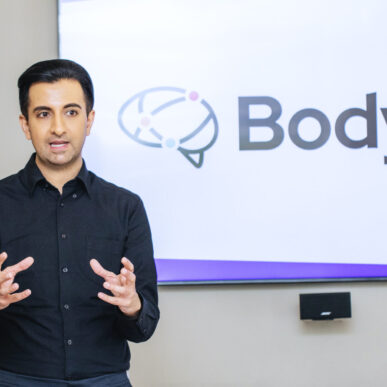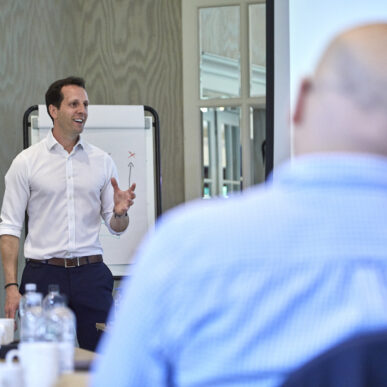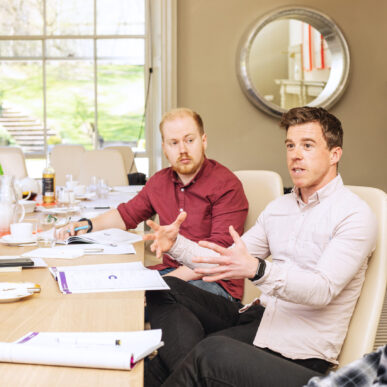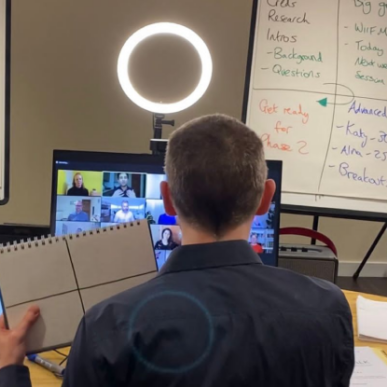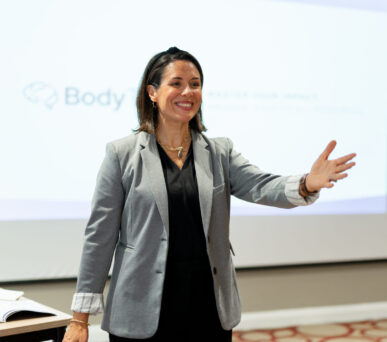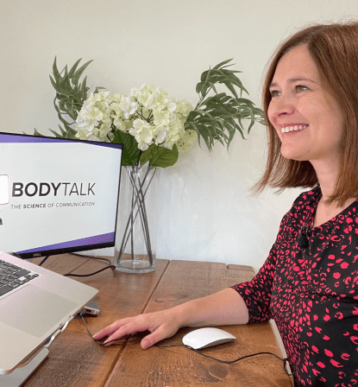“Sometimes we choose to vocalize our pauses instead of allowing them to just be”
The Power Of The Pause – The Secret To Making Your Presentations More Impactful
Sometimes silence is more powerful than words.
Public speaking places a lot of importance on the actual speaking part — and why not? Your content is the base upon which you build all your other presentation details, like how you move your body, what sort of visuals you may use, and what tone to take as you’re speaking.
But you can also use silence like an audible highlighter pen, drawing attention to the key focus of your presentation.
Sometimes people choose to race through their speech, not leaving any space for breath or pause. This is a mistake and it comes from fear. People are afraid that a pause may indicate that you’ve forgotten something or are fumbling for your next point.
But this isn’t the case. With enough practice, you can learn to use pauses with power.
Here’s how:
1. A pause can help you remember what you were going to say next.
It may surprise you that one of the greatest fears in public speaking is easily solved.
Many people worry about the fatal mind-blank moment. You’re ready, you’re prepared, you take your most confident stance in front of your audience, open your mouth…and nothing comes out.
The trick to not letting panic invade and take over is to simply pause and remember that you are in control. You can breathe at your own pace and the audience will wait until you are ready. Pausing for a few seconds may feel like hours to you, but the audience may not even notice. They just gain the sense that you are not rushing.
Part of the reason we sometimes forget what we were going to say — no matter how many times we’ve memorized or practiced — is that we let our nerves get the best of us. Our body tenses up, we hold our breath, and, as a result, less oxygen gets to our brain causing us to forget what we were going to say.
Taking a pause to breathe deeply is sometimes all you need to remember your next trigger word or key phrase.
2. A pause can add weight to what you’ve just said.
Sometimes powerful or dramatic statements can be leveraged even further with an audience by adding a pause after saying a key message.
You’ve most likely seen actors do this during a monologue. They say something crucial to the development of their character, then pause, leaving the audience to really absorb the impact of what was just said.
A pause like this takes your listeners on a journey with you, allowing for a mental break to reflect on something important before you go forward.
A dramatic pause between thoughts can help your audience to lean in a little closer with excitement.
The most well-known version of this recently has been on TV talent shows. Before announcing the results the host will usually say, “And the winner of tonight’s show is…(pause for twenty seconds)…Sarah!” You don’t need to go that far, and many of them overdo this, but we cannot help but feel greater anticipation about the answer.
It can also serve as a great way to pivot points if you’re giving an argumentative or persuasive speech. In much the same way a pause after an impactful statement will give your audience time to reflect, a pause between main points can build suspense as to what’s coming next.
3. A pause can help you reduce the number of filler words in your speech.
Sometimes we choose to vocalize our pauses instead of allowing them to just be. This sounds like “um” or “err” most of the time. In other instances, it might be repeated words such as “actually” or “obviously”.
Allowing your pauses to be silent will take practice, but it will make you a stronger speaker overall because each of your words will sound more important.
Vocalized pauses are distracting to audiences and can be annoying depending on their frequency. It’s okay to simply have a brief pause between sentences or idea shifts and have that pause act as just that — no drama, no ulterior motives, no tension.
But reducing the number of vocalized pauses in your speaking will make you sound more professional. And by sounding more professional, you’ll ultimately feel more confident.
To learn more about how we can help you please contact our team and discover how our courses can help to increase the impact of your presentations.








